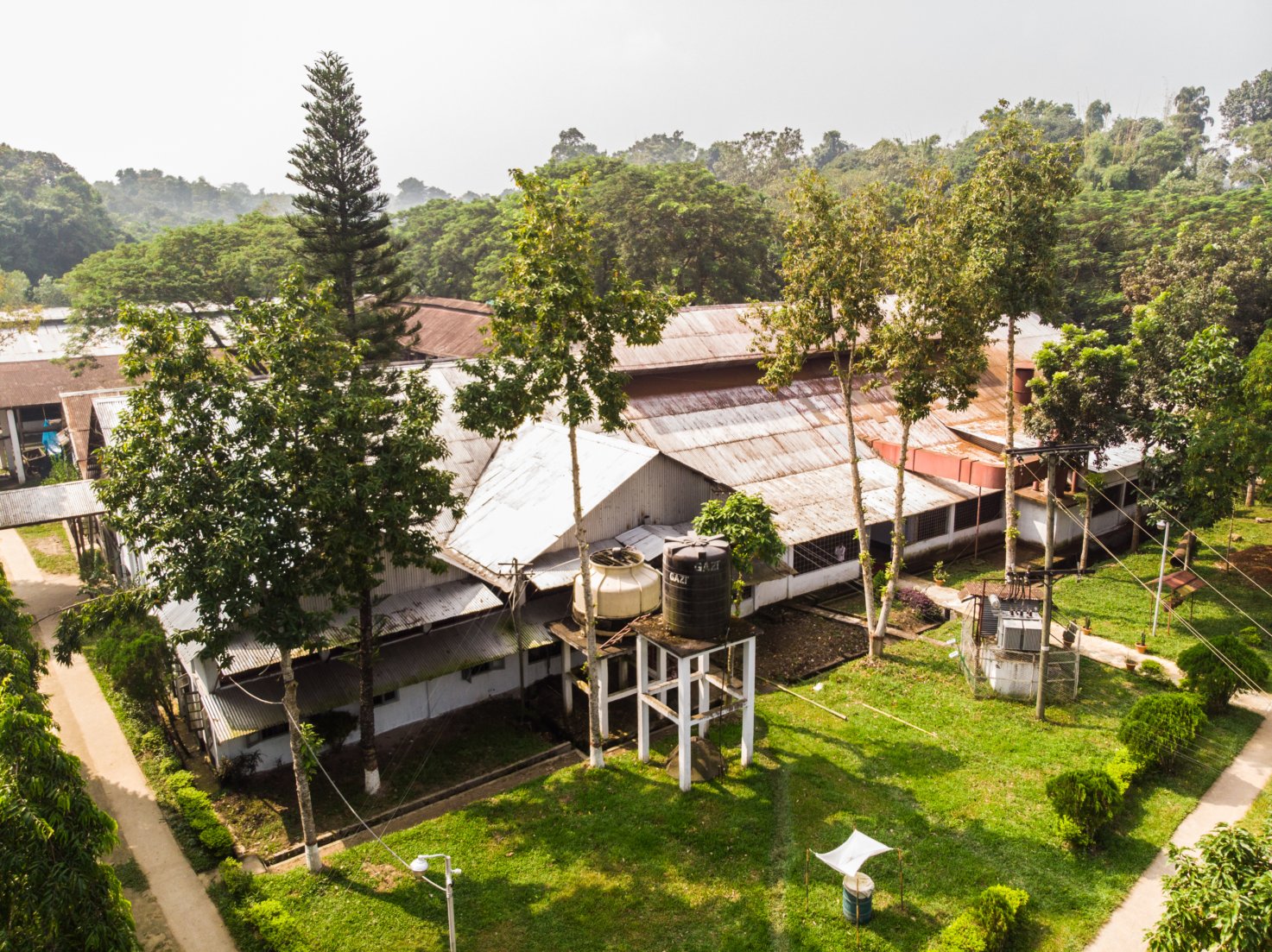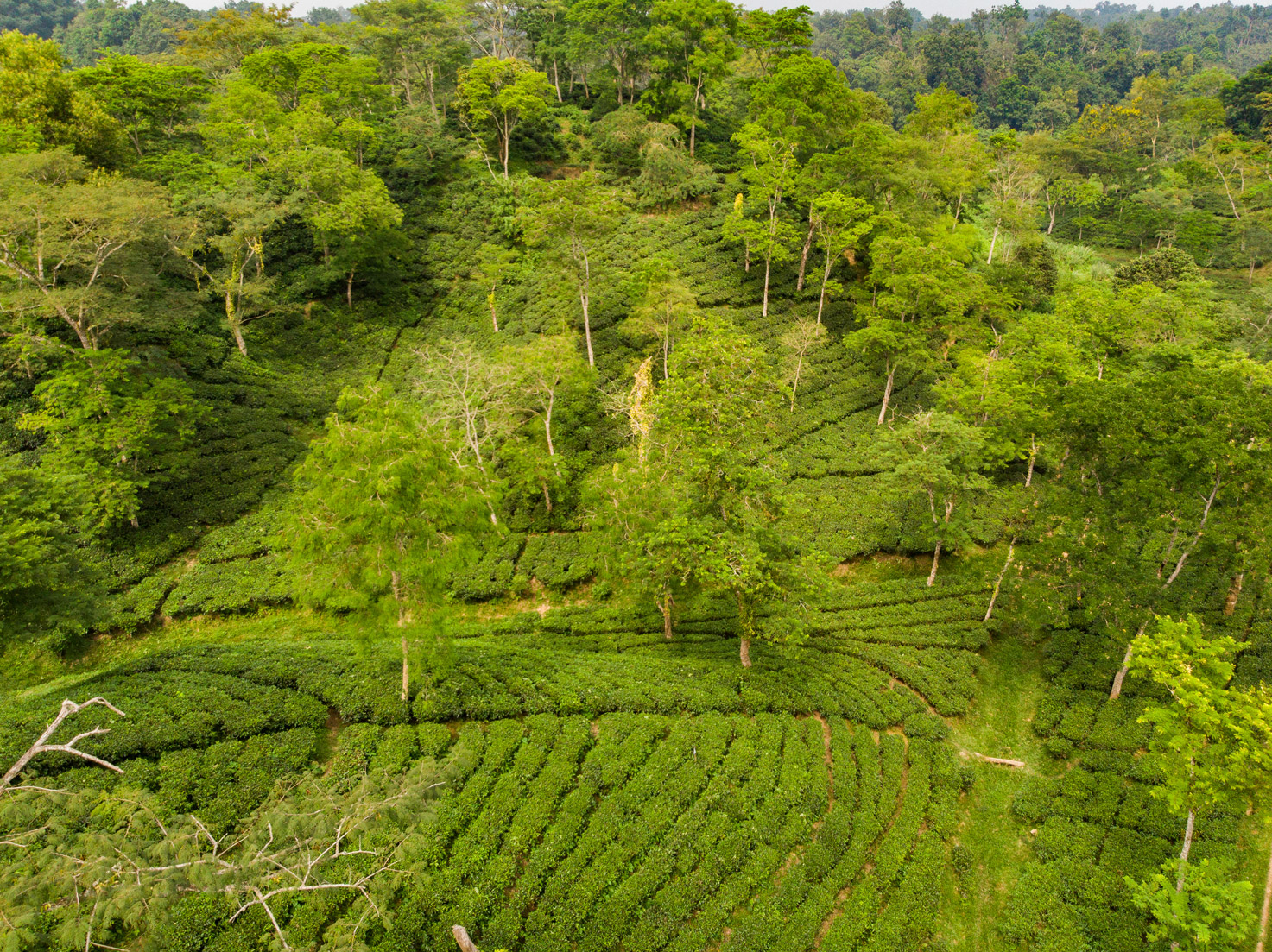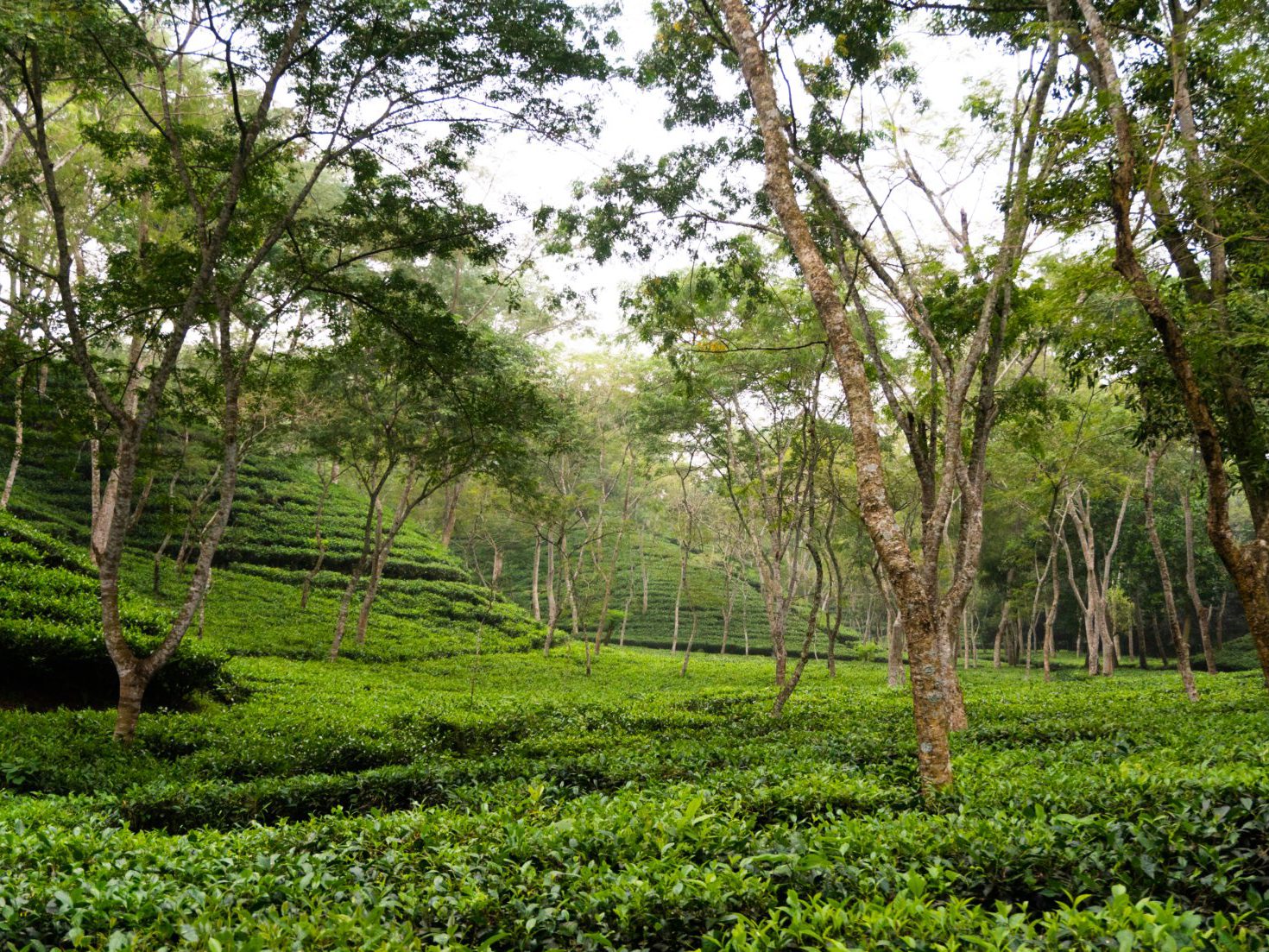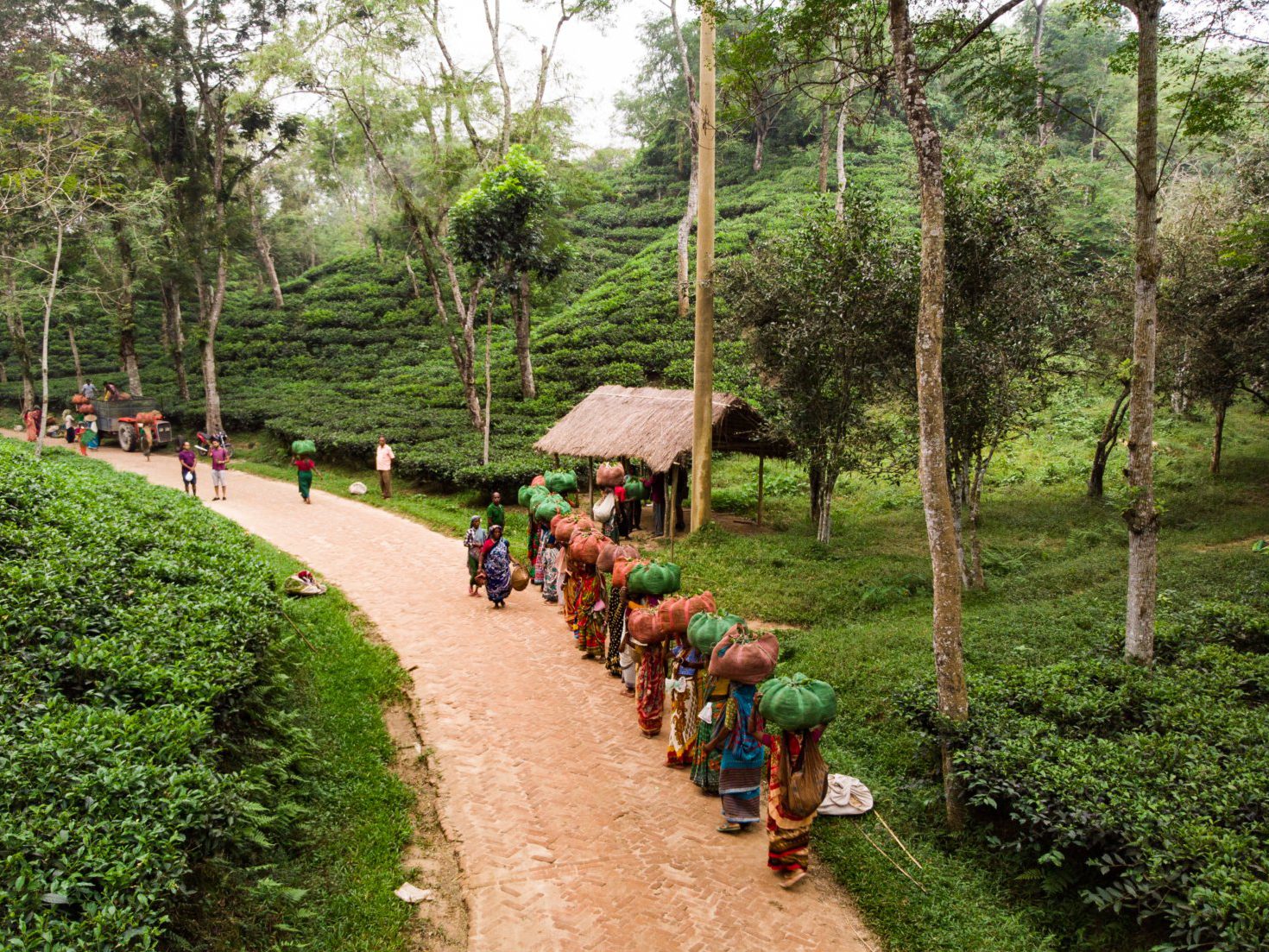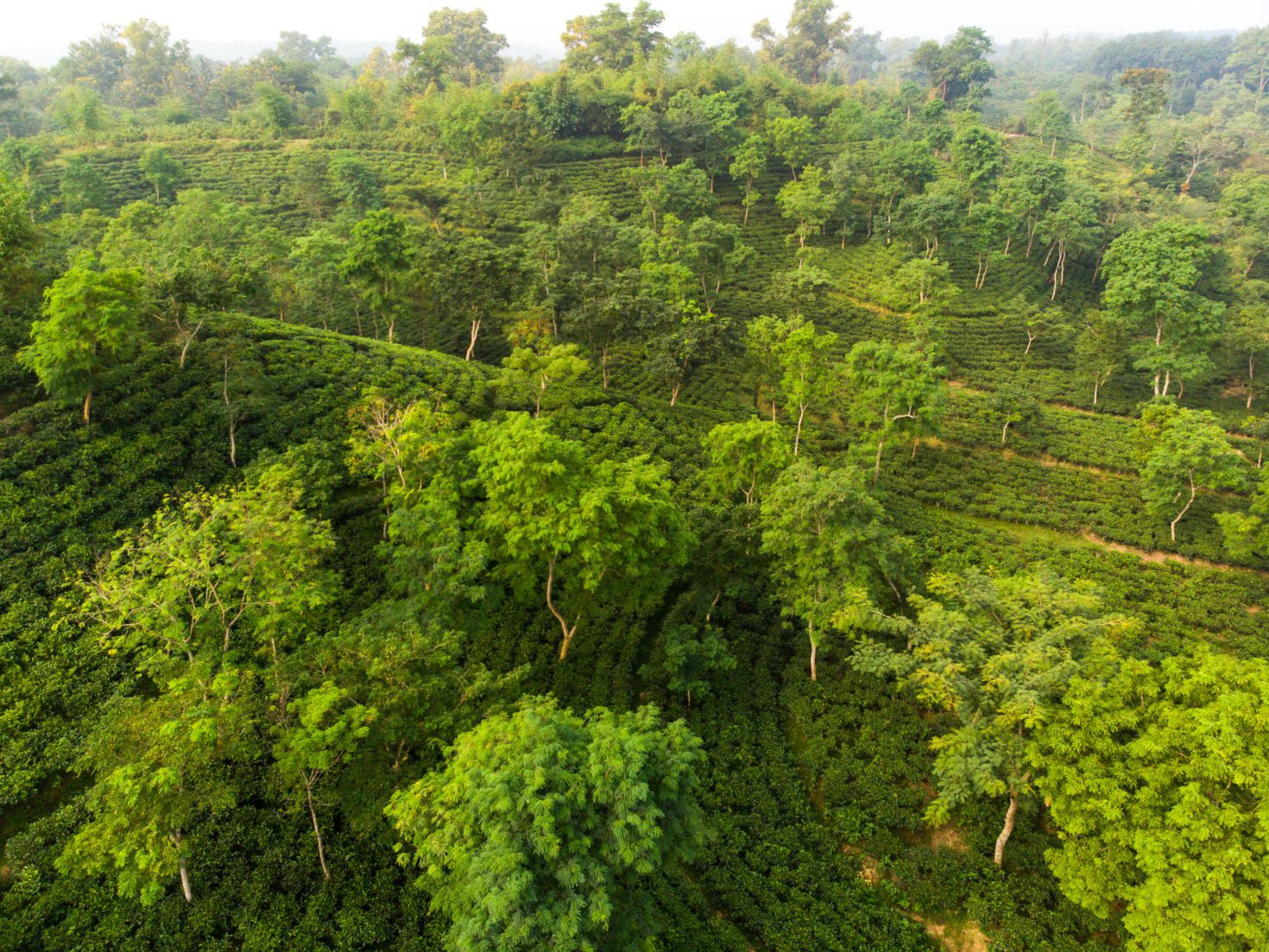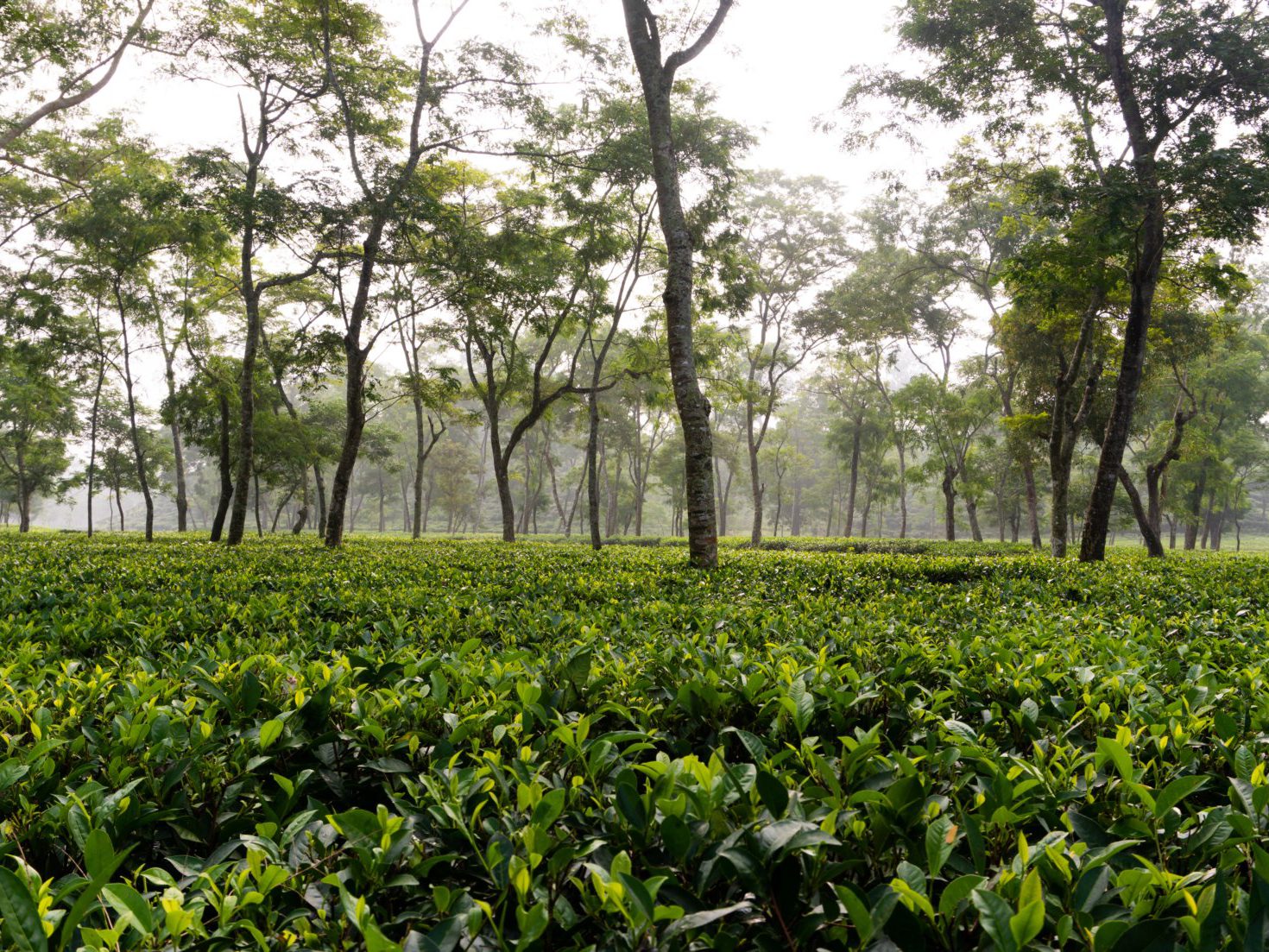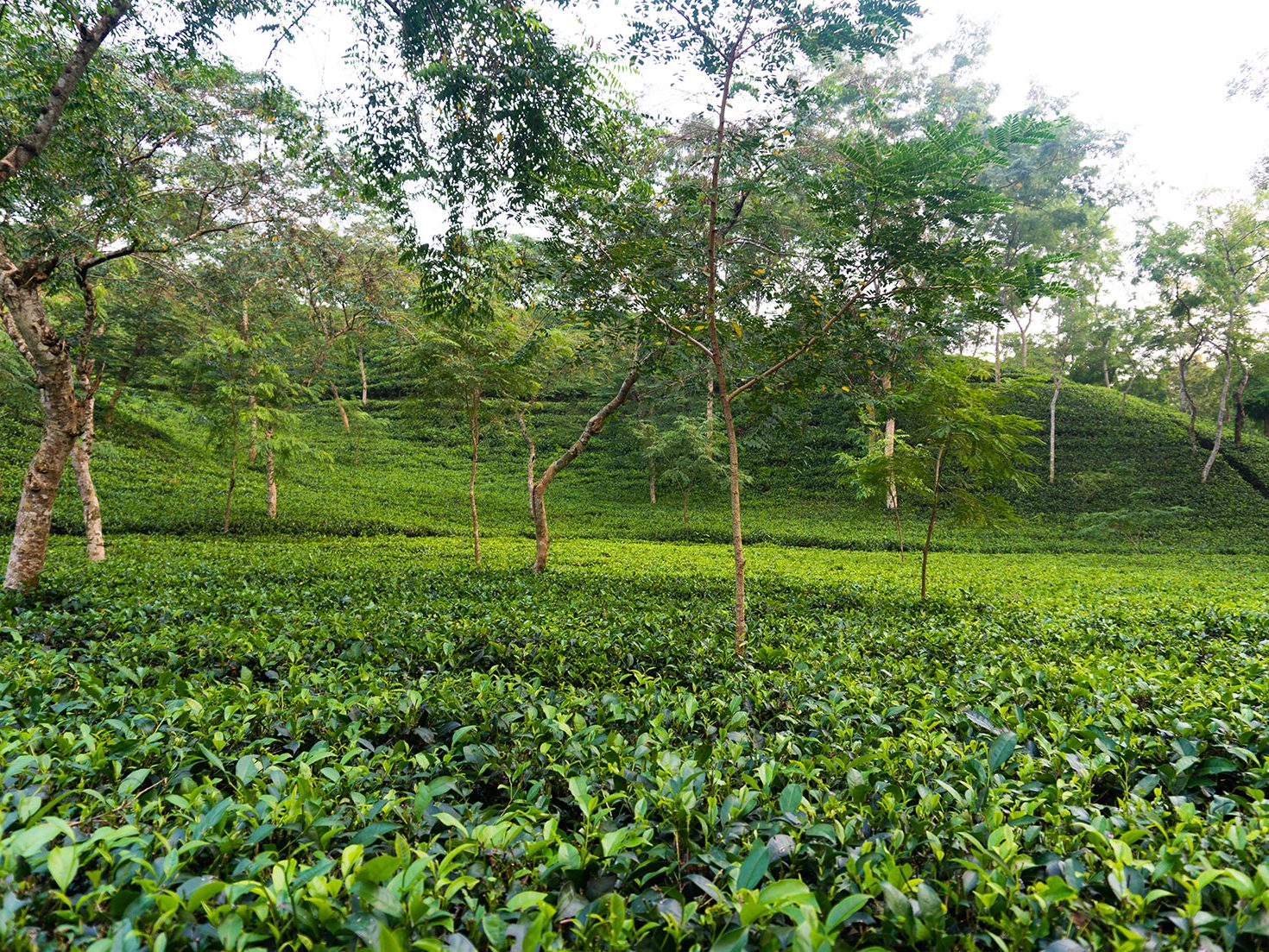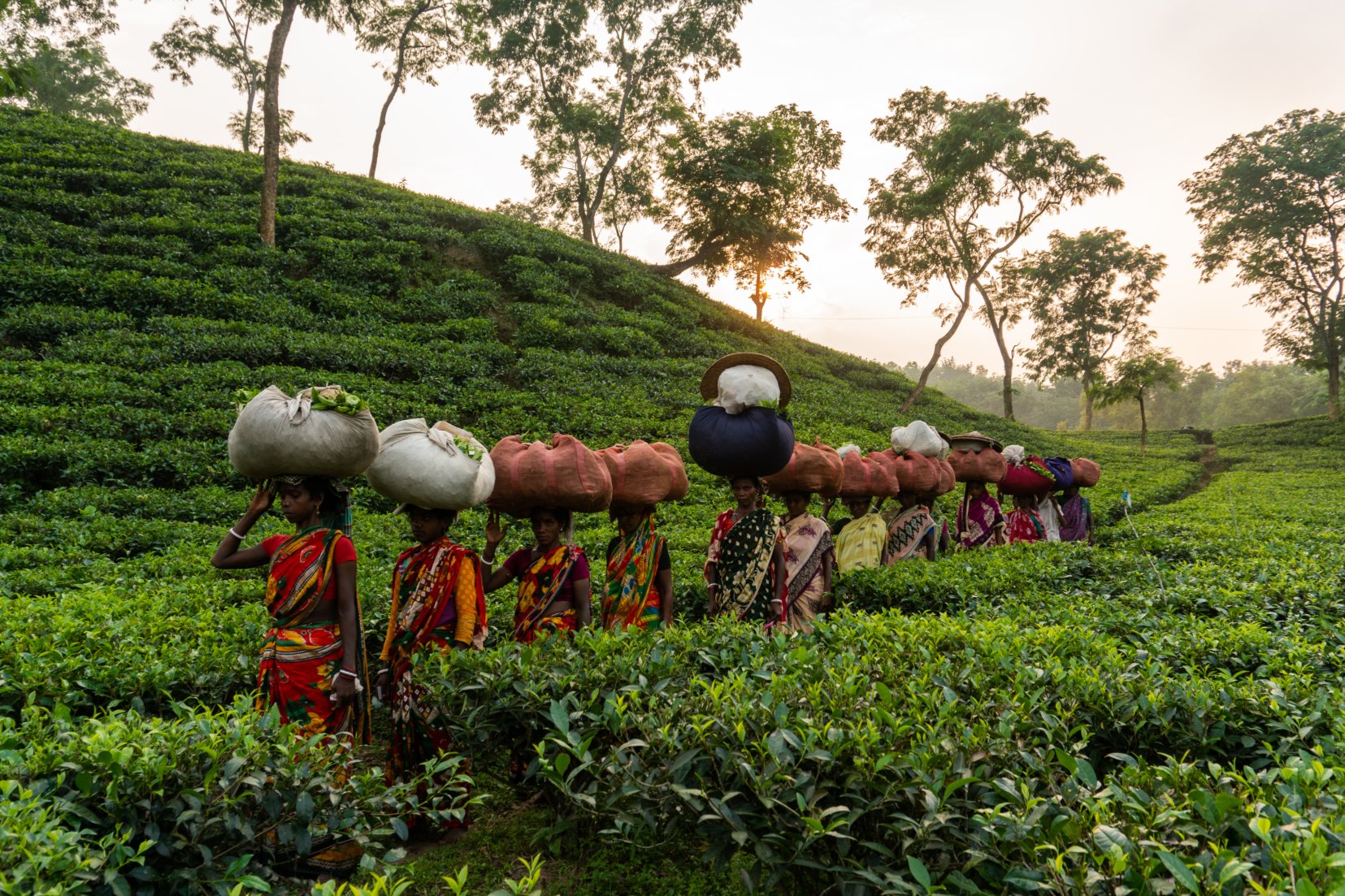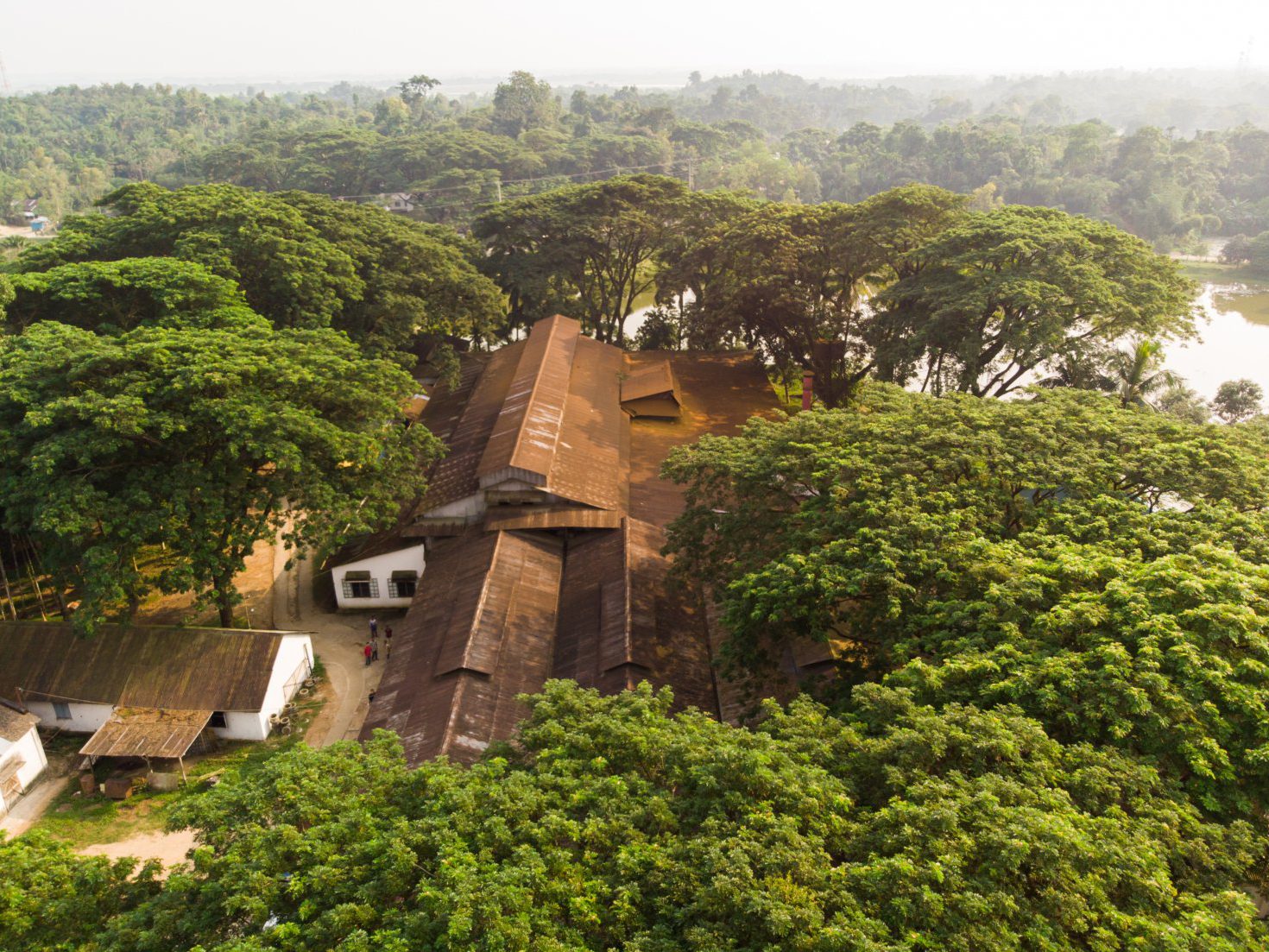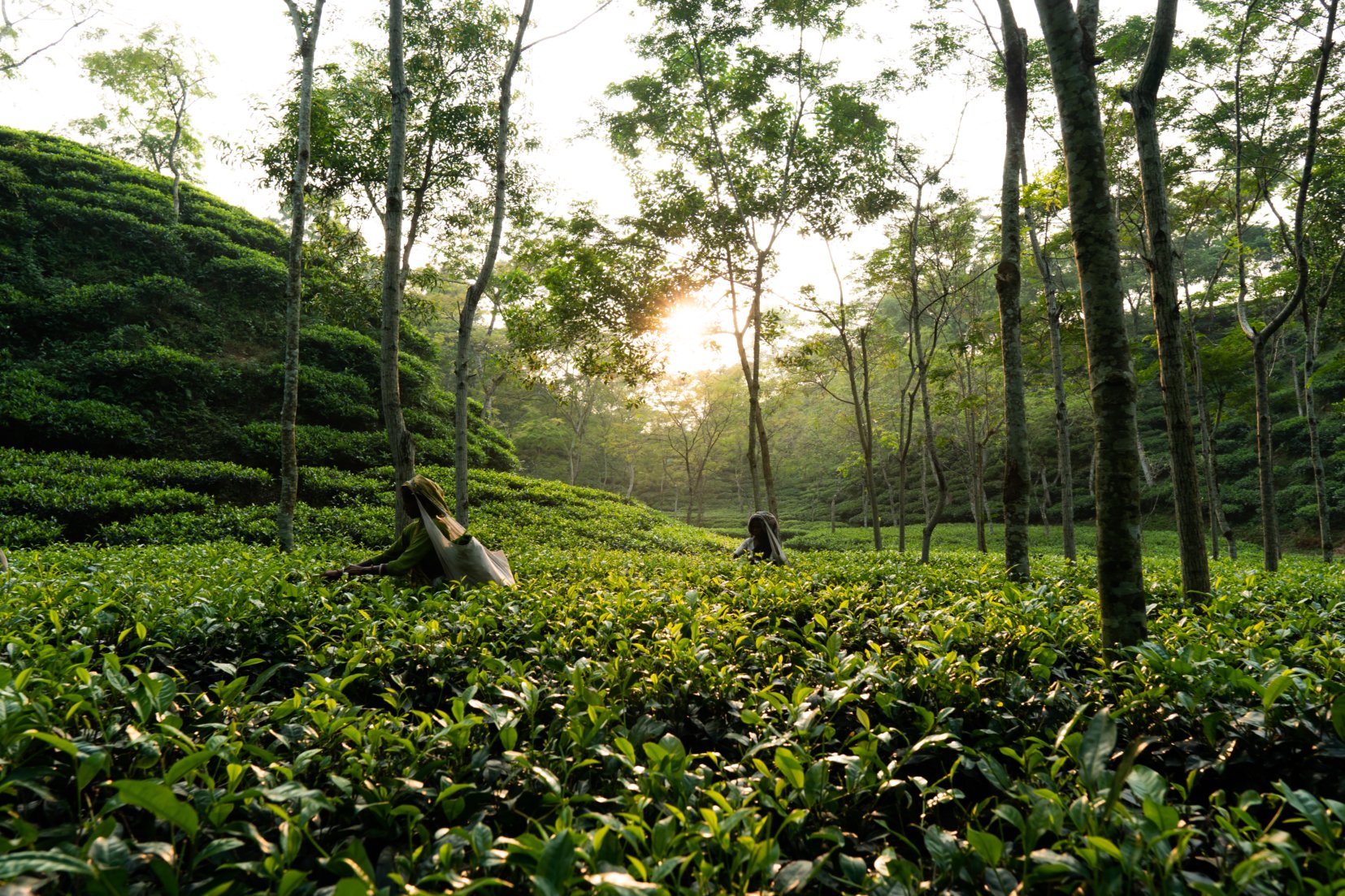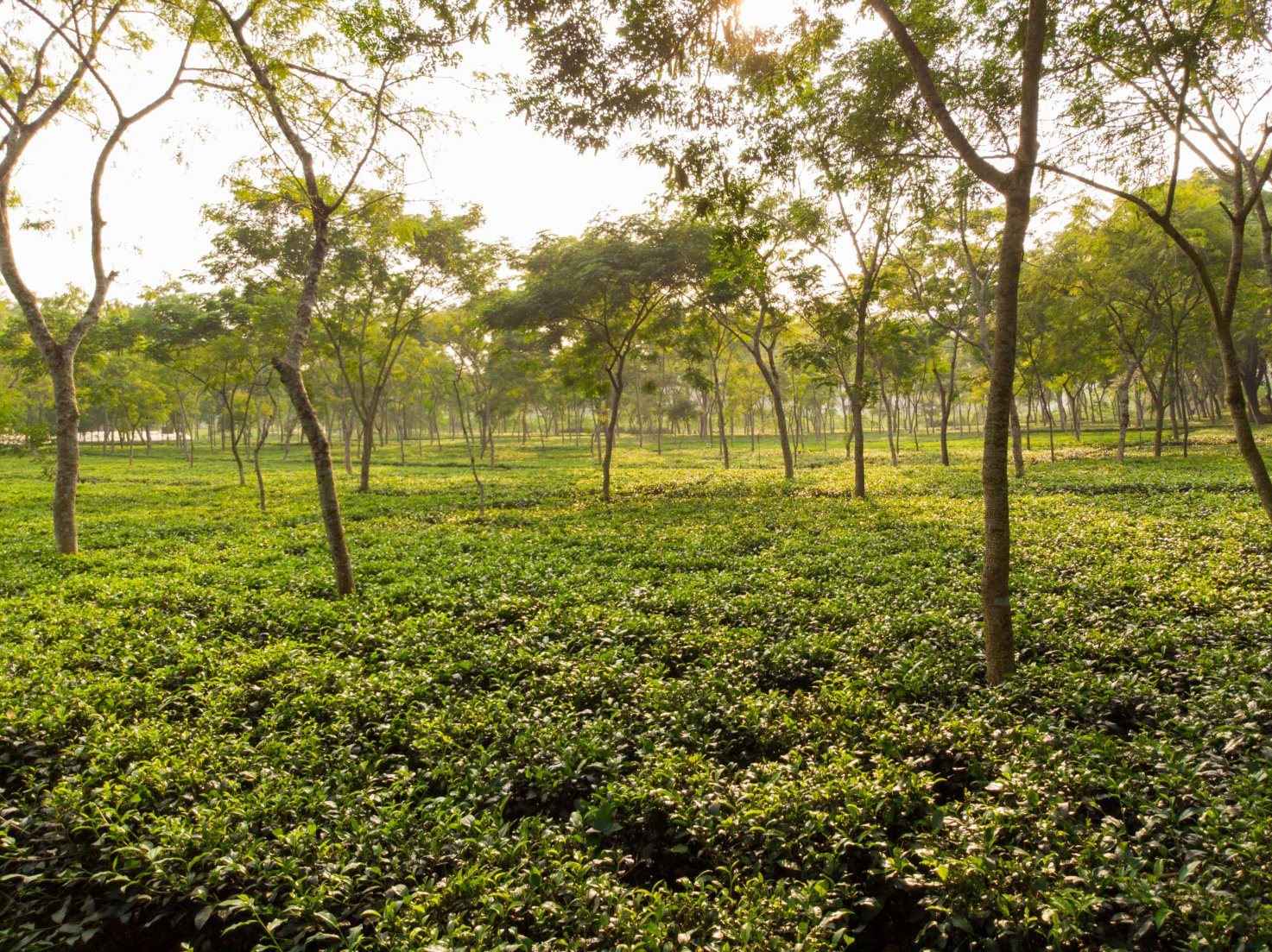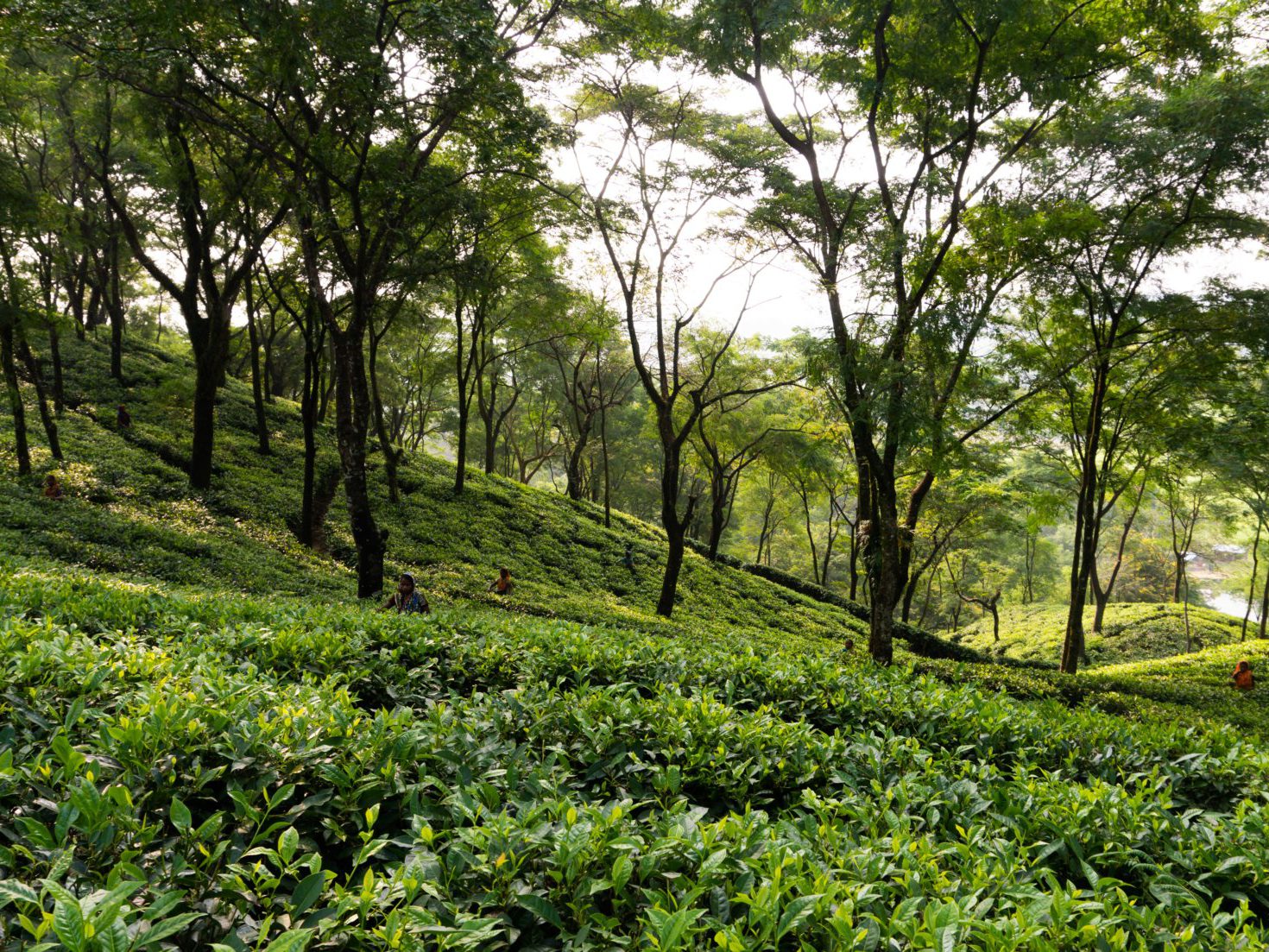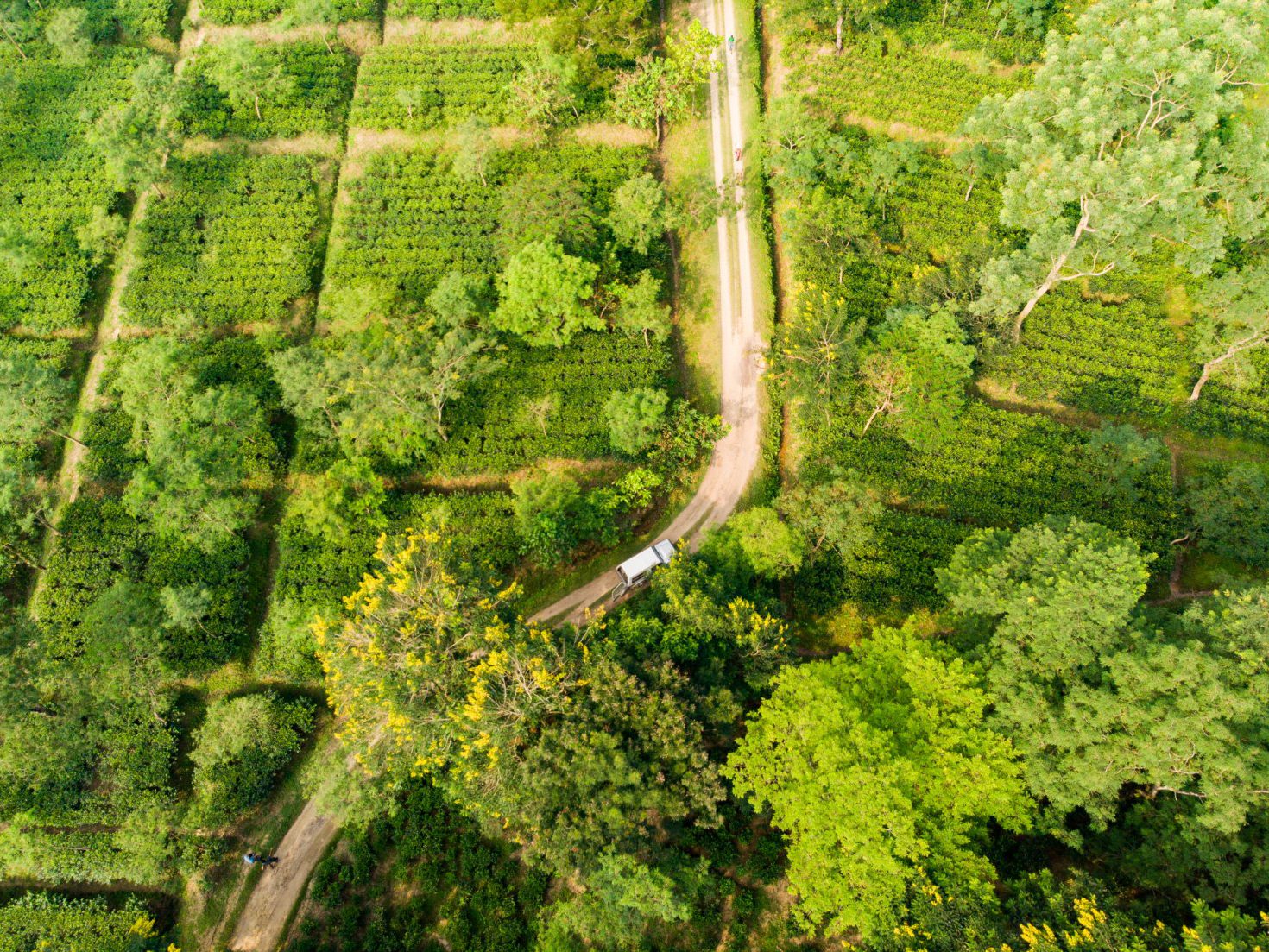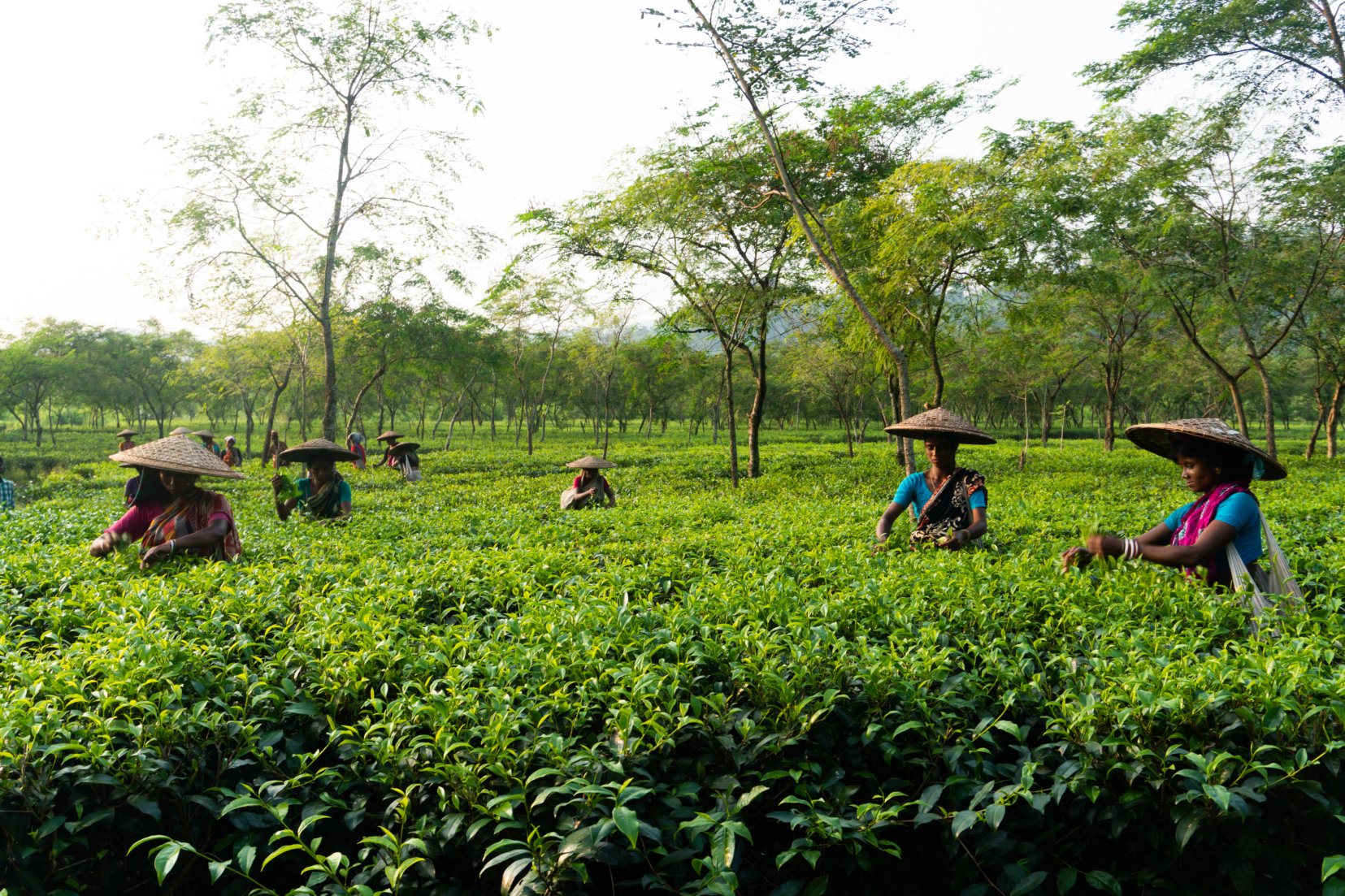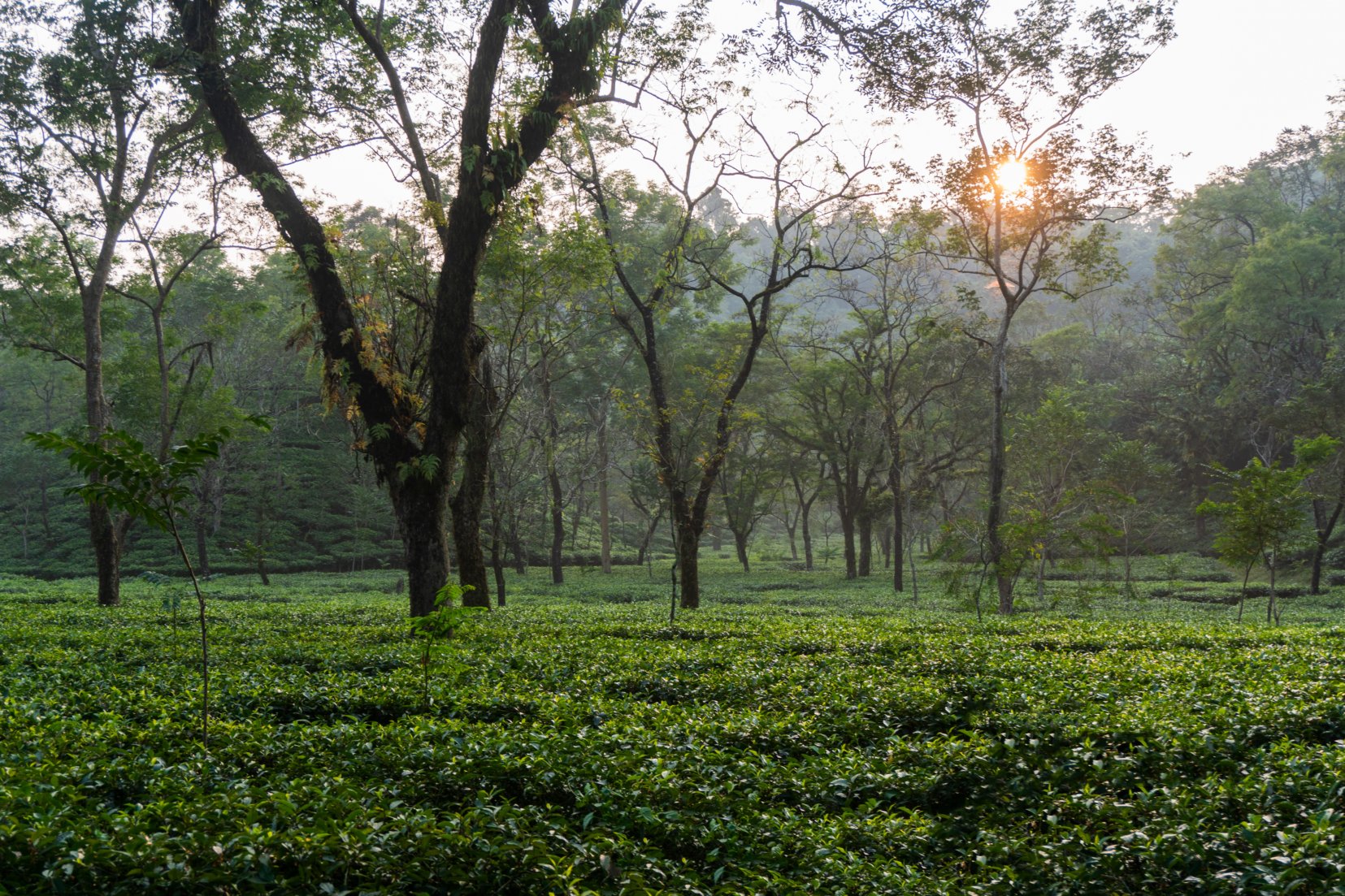Phulbari Tea Estate, acquired in 1951, is situated in Srimangal district – the prized tea belt of Sylhet. The estate passes through the dense forests of Lawwacherra Natural Park, home to many species of rare wildlife such as hoolock gibbons and the slow loris. The dense vegetation of raktan, shegun, and thick growth of jai bamboos add to the natural bio-diversity of the area.
Phulbari is the Group’s highest producing unit, producing cups with bright infusion, sought after by buyers throughout the season. Devastatingly affected by the Magurcherra gas explosion in 1997, the Estate has since witnessed a commendable turnaround through habitat restoration and soil rehabilitation.




